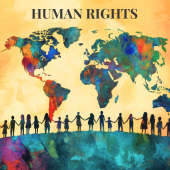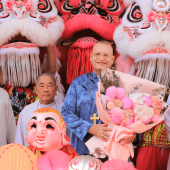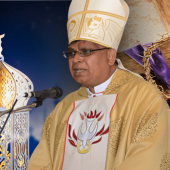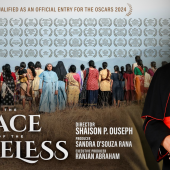Jesuits say children in Myanmar need books more than bullets
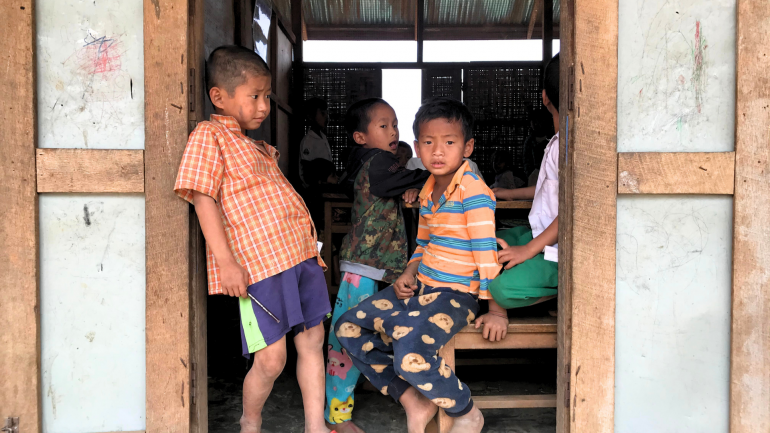
Children long for books instead of bullets in Myanmar, say Jesuits.
Jesuits who work in crisis-stricken Myanmar say nearly 20 million people are in urgent need of emergency humanitarian assistance, including over six million children, who need books and other support to study and build their lives and future.
The support for children and families suffering through the devastating crisis in Myanmar is enormous.
After four years of escalating conflict, natural disasters, and political violence, Myanmar has descended into a “living nightmare,” Jesuits say.
The affected people in Myanmar need vital relief and hope for those suffering in war.
Since the military coup on February 1, 2021, people in Myanmar have endured escalating violence, natural disasters, and the displacement of over 3.5 million people.
The affected individuals still require emergency food and water kits for their families, hygiene kits, medical supplies, bedding, family shelter kits, and much more.
More than six million people still urgently need help almost three months after Myanmar's strongest earthquake in a century compounded by a humanitarian crisis brought on by years of conflict, political unrest, and mass displacement.
UN estimates indicate that the March 28 earthquake measuring 7.7 on the Richter scale struck central areas with fatal force, killing some 3,800 people and injuring over 5,000 others.
Tens of thousands more people have been displaced in a nation already struggling with over 3.2 million internally displaced persons (IDPs) since the military takeover; the catastrophe destroyed infrastructure and homes across Mandalay, Sagaing, and Magway, says the UN.
Speaking to journalists at the UN Headquarters in New York via video from Beijing following a three-day visit to Myanmar,
Jorge Moreira da Silva, Executive Director of the UN Office for Project Services (UNOPS), who visited Myanmar recently, said, “Communities are still reeling from the earthquake—the strongest the country has experienced in a century."
"The destruction caused by the quakes compounded the existing challenges of conflict, displacement, and severe humanitarian needs,” he added.
"My colleagues worked fast with partners to deliver emergency shelters, clean water, and deploy infrastructure experts for rapid assessments," Mr. da Silva said.
He cautioned that much more international help is required to meet the needs.
The World Bank projects an overall loss of almost $11 billion, with complete reconstruction expected to cost two to three times more.
We will remove over 2.5 million tons of trash to facilitate recovery in the aftermath of the earthquake.
Reconstruction must, Mr. da Silva underlined, be inclusive, people-centered, and connected to efforts at peacebuilding.
"We echo calls from throughout the UN for an end to violence," he said. "Reconstruction and rehabilitation should help Myanmar travel toward peace and reconciliation. The first concern must be civilian protection.
According to him, girls and women run different risks. Women and girls have suffered from the humanitarian fallout; many were among those who were killed or injured, and today they face increasing protection risks.
More than 4.6 million women of reproductive age, including over 220,000 presently pregnant, are at increased risk, claims the UN Reproductive Health Agency, UNFPA.
Monsoon flooding and insecurity have damaged health facilities, affecting access to menstrual hygiene and emergency obstetric treatment. In crowded, poorly lit shelters, meanwhile, gender-based violence is becoming rather common.
Meanwhile, the health system in the country is under strain—the increasing risk is waterborne diseases, including cholera, and vector-borne diseases, including dengue and malaria.
The World Health Organization (WHO) reports that acute watery diarrhea and skin infections are rising even though, as of May 31, no significant outbreaks have been recorded.
Monsoon rains have made temporary shelter conditions worse; overcrowding and inadequate sanitation create major health issues. Mental health is still delicate; 67% of respondents in a recent poll claimed emotional suffering related to the earthquake and continuing conflict.
Despite ongoing restrictions on access and underfunding of health services, the WHO and its partners have successfully delivered over 600,000 doses of vaccinations, including those for tetanus and rabies.
According to the refugee agency UNHCR, more than 3.25 million people still live displaced in Myanmar since the military takeover in February 2021; at least another 176,000 people have sought refuge in surrounding nations.
This leaves out the hundreds of thousands of Rohingya refugees from past waves of conflicts.
For landmines and explosive remnants of war, Myanmar also continues to be among the deadliest nations in the world.
As many as 889 deaths and injuries were recorded in the first nine months of 2024 alone, sparking concerns the toll could top the record 1,052 deaths and injuries recorded in 2023, according to a UN report.
Radio Veritas Asia (RVA), a media platform of the Catholic Church, aims to share Christ. RVA started in 1969 as a continental Catholic radio station to serve Asian countries in their respective local language, thus earning the tag “the Voice of Asian Christianity.” Responding to the emerging context, RVA embraced media platforms to connect with the global Asian audience via its 21 language websites and various social media platforms.










